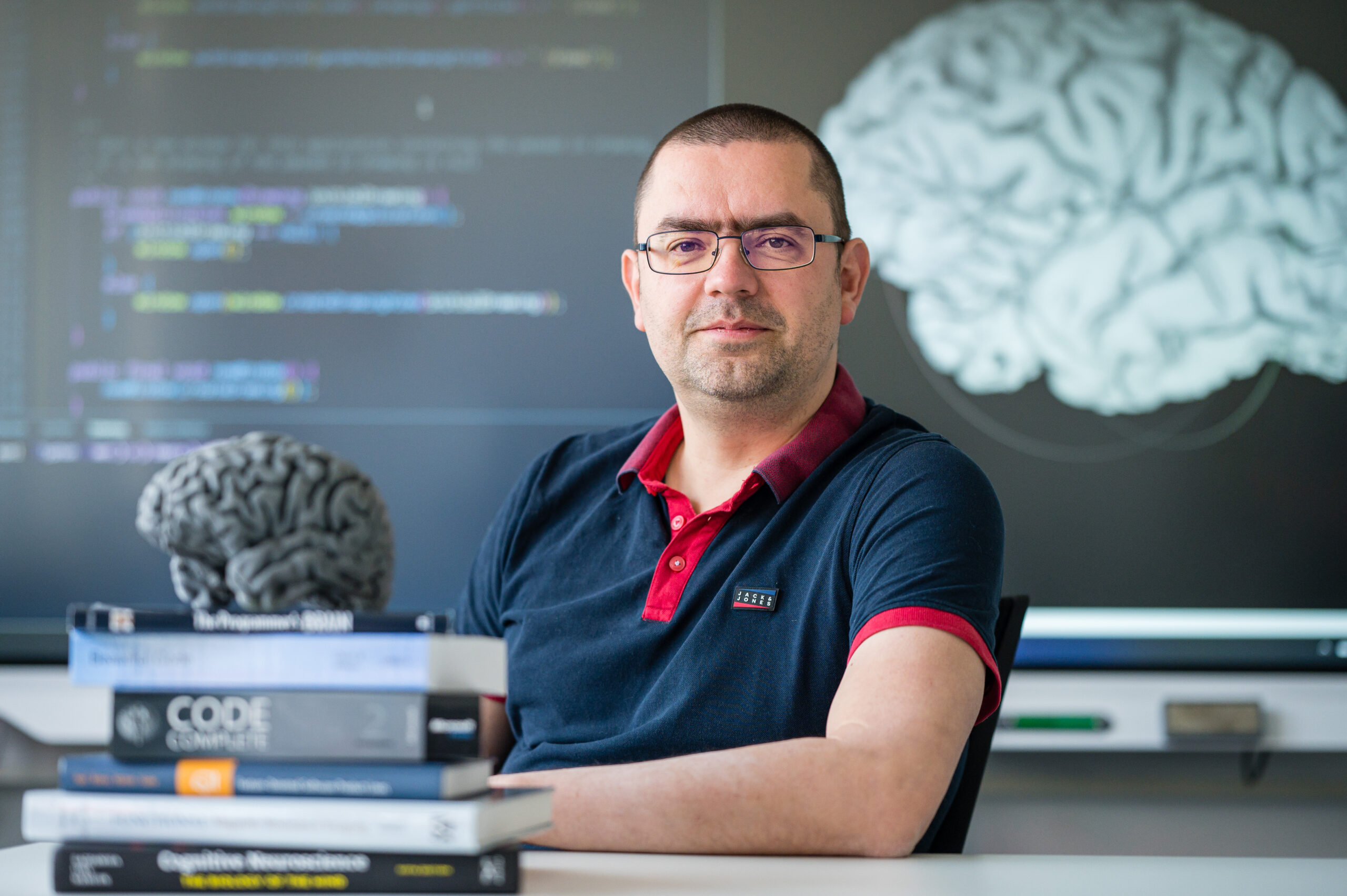Saarbrücken computer scientist honored for seminal research on program comprehension

Photo: Oliver Dietze
At this year’s “International Conference on Generative Programming: Concepts & Experiences (GPCE)”, Saarbrücken computer science professor Sven Apel and colleagues were presented with a “Most Influential Paper Award”. The award honors work that has had a lasting impact on their field of research. The winning paper was published back in 2013.
In their paper “Does the discipline of preprocessor annotations matter?: A controlled experiment.”, Sven Apel and his colleagues Jörg Liebig, Sandro Schulze, and Janet Siegmund investigated so-called program annotations – information attached to the code that programmers use to highlight certain functions or to incorporate alternative paths into the execution of a program. They differentiated between “disciplined” annotations, which are well integrated into the code, and “undisciplined” annotations, which are used rather arbitrarily. The aim of the research was to find out whether disciplined annotations facilitate understanding and error correction in the code.
For this study, the research team used an experimental approach that was innovative in the research landscape on program comprehension at the time: they divided test subjects into two groups and had them work on tasks in a controlled environment that contained either disciplined or undisciplined annotations. Then the performance was measured in terms of correctness and response time. “Surprisingly, our results indicated that the type of annotations had no influence on comprehension. However, finding and correcting errors was more time-consuming when annotations were present in the code – regardless of whether they were disciplined or not,” explains Sven Apel.
The computer scientist from Saarbrücken emphasizes that it was the experimental method that led to the award. Before their study, there was virtually no empirical data on this topic – people relied on experience and the assumption that “clean” code was easier to understand. “Our work was one of the first to apply interdisciplinary methods in program comprehension research in order to achieve solid empirical results. Today, the experimental setup is standard,” says the professor.
Sven Apel and his colleagues continue to be very successful in researching the comprehension of program code. In addition to another “Most Influential Paper Award”, Sven Apel in 2022 received an ERC Advanced Grant which is endowed with a 2.5 million Euro for the project titled “Brains on Code: A Neuroscientific Foundation of Program Comprehension”.
Original publication:
Sandro Schulze, Jörg Liebig, Janet Siegmund, and Sven Apel. 2013. Does the discipline of preprocessor annotations matter? A controlled experiment. SIGPLAN Not. 49, 3 (March 2014), 65–74. https://doi.org/10.1145/2637365.2517215
Further Information:
Most Influential Paper ICPC 2022
ERC Advanced Grant „Brains on Code: A Neuroscientific Foundation of Program Comprehension”
Questions can be directed at:
Prof. Dr. Sven Apel
Chair of Software Engineering
Saarland University
Tel: +49 681 302 57211
Email: apel@cs.uni-saarland.de
Background Saarland Informatics Campus:
900 scientists (including 400 PhD students) and approx. 2500 students from more than 80 nations make the Saarland Informatics Campus (SIC) one of the leading locations for computer science in Germany and Europe. Four world-renowned research institutes, namely the German Research Center for Artificial Intelligence (DFKI), the Max Planck Institute for Informatics, the Max Planck Institute for Software Systems, and the Center for Bioinformatics along with Saarland University and its three departments and 24 degree programs, together cover the entire spectrum of computer science.
Editor:
Philipp Zapf-Schramm
Saarland Informatics Campus
Phone: +49 681 302-70741
E-Mail: pzapf@cs.uni-saarland.de
